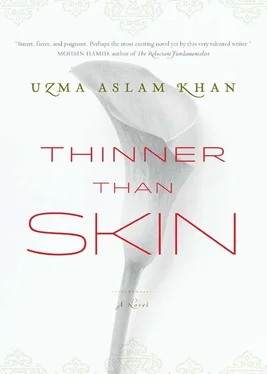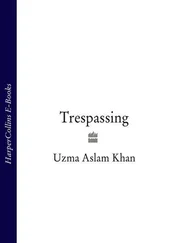To their yurt and their games he returned, wherever he went, and for however long. She could weave the finest rugs ever seen, a skill that flowed in her blood for more generations than he could name, for which he fetched a handsome price, keeping her family well fed. He did not need to return to Pakistan very often for leather or other goods. He no longer found much use for jade.
Yet, lately, something was pulling him back, something that had not pulled him for a while. The comforts of the yurt had begun to ache. The duck no longer tasted sweet. Mare milk was rather sour when compared with buffalo milk. And the truth was, though it delighted her, kyz kuu exhausted him. Perhaps it was time for a visit. So he had sent the blue feather to the girl of the valley of his youth, smiling to himself as he recalled her amazement the first time he left her a sign in the cave. Their cave. And he sent word to all those he had met in his many years as a suitcase trader, a long, long network of associates who were Uzbek and Tajik, Afghan and Uyghur, men with a long, long ear and a memory as wide as the Lli River that flowed from Kazakhstan all the way into Xinjiang. He told them he needed something rare, very rare. Something he could give to someone from his past, something no one had ever thought to give before, the best surprise they could think of, and the most beautiful, and the most short-lived. For he was not staying long in Pakistan. It should last only as long as his trip. But it must be exceptionally radiant, silken, and sweet. In short, it must be rare .
And then he left.
From the open grassland of the steppe he eventually descended into the town of Almaty, and from there to Bishkek, swinging west into Tashkent — he had once told her their cave led all the way to Tashkent, he recalled, his step buoyant — repeating what he had already asked, and the answer was always the same. No, they had not found anything that rare but they would keep searching. It was July, the time of year when nomads all over Asia have moved from their winter homes into summer pastures, and he knew it would be the same for Maryam and her family. Maryam . He had not spoken her name for some time. She had always loved this time of year, away from the plains, high in the grazing grounds around Lake Saiful Maluk. Perhaps she was thinking of him, at just this moment.
Perhaps she was missing his version of the song about the prince, the princess, and the jealous jinn.
From Tashkent he descended into the Fergana Valley, and now he was getting close. He was approaching the passes through the Pamir and Karakoram ranges he knew so well he could have made the trek in his sleep, and he might have, but for one event that required him to remain fully awake.
It was this event that had tipped off these men.
It happened in Andijan, where he had stopped for just the day. The city Genghis Khan had burned seven hundred years ago, and that his grandson later rebuilt. The city where the Khan’s most famous descendent, Emperor Babar, founder of the Mughal Dynasty, was born. The city where his most profitable clients now lived.
Ghafoor had arranged to meet his client in Babar Square. As he approached the square, he recognized the man, but the man was not alone. Beside him was a Uyghur from Xinjiang. Ever since leaving Kashgar, four summers ago, in haste, Ghafoor had been avoiding the Uyghur community as much as he could, which, given his business, was not always possible. His strategy was to always approach a Kashgari, in particular, from the side. He did not want to be recognized as the foreign merchant who broke his promise to a local girl. Repercussions could be — well, how would they be down in Kaghan? But this day, perhaps it was his excitement at nearing the mountain passes so familiar to him, or perhaps it was the way the sunlight fell on the statue of Babar’s horse, whatever the reason, when both men greeted Ghafoor, they seemed amiable enough, and he relaxed. The Uzbek examined the rugs Ghafoor had brought, nodding appreciatively while promising, “God willing, we will find the just rate.” When both men invited him to lunch at a crowded teahouse, he agreed.
He regretted it almost immediately.
How were the women up there, in the steppe, the Uyghur — who, it turned out, was from Kashgar — wanted to know.
“Well,” answered Ghafoor, scooping handfuls of palov with his fingers. “The women are well.” At the table next to him, he heard a European refer to the rice dish as pilaff, the Kashgari at his table refer to it as polu, and of course, were he in Pakistan, he would hear it called pilau. It was piled high with mutton seasoned with herbs rather than spices and though he was now used to the difference, he ate with two tongues, one that did all the work while the other dreamed of flavors it did not touch.
“So you are married, then?” continued the Uyghur, who preferred to sip black tea without milk or sugar rather than eat. “To a Muslim?”
“Yes,” he shifted in his seat. The Muslim of the steppe, he knew, was too animist for the Muslim of the town, and the Muslim of the town, for the Soviets and the Chinese, was just too Muslim.
“How many wives?” said the man, now lighting a pipe.
“One.” Ghafoor licked a spoon of yogurt, thinking, They like their yogurt sour here .
A silence ensued, as deliberate as the slow burn of his pipe. The other man ordered a bottle of vodka, and, when it arrived, he began to talk. He spoke of the Andijan Massacre, two months earlier. Police had shot into a crowd of men, women, and children pressed together in Babar Square to protest the arrest of several businessmen. This was the same square in which their forefathers had fought Russian forces. They were not about to acquiesce to a president who behaved like a twenty-first-century tsar. More than 10,000 people came out in support of the prisoners. The Uzbek army blocked all routes to Babar Square with armored personnel vehicles and tanks. “Then every one began to panic,” said the Uzbek. “We heard the whit whit whit of steel blades over our heads. At the exact moment when I looked up, the shooting began. It was like 1898 all over again, only now, they shot at us from the sky. We found the graves later. Fresh ones. Thousands of them. Even children.”
The Uyghur listened. When the Uzbek was finished, he began to talk. More native Kashgaris had been forced out of their city as China’s plan to develop Kashgar fortified. China had put more Uyghur organizations on the terrorist list, convincing the international community to do the same. There were even Uyghurs in Guantanamo Bay, handed over to America by Pakistan. The two men traded tales of injustice till long after the sunlight had slid off the statue of Babar’s horse.
At last the Uzbek concluded, “We thought we were free, but now our own president works against us. Jailing those who are strong, shooting those who are weak!”
At which point, the Uyghur turned to Ghafoor (causing him to wonder later if every detail of this afternoon had been rehearsed), “ Your country does the same. Why does it make friends with China? Why does it let China build highways and ports through the lands of its own people? Do you think it will make men like you rich?”
Ghafoor had stopped eating some time ago; the vodka he guzzled. He did not know how to explain that it had been a while, a very long while indeed, since he felt he had a country. Perhaps the last time was even before he had a single hair on his cheek. He had tried to fight for it, once, this country that had never been his, as though by fighting for it, he might earn it, but this had only resulted in his own people telling him to leave. He now belonged to the steppe. Even if he still carried his past in his shins.
“We herders have a very different fate,” said the Uyghur, ordering a fresh pot of tea. “We may wear better clothes than those who still spend their lives looking for a field that welcomes them, but we will never stop wandering. Will we? Even when we have an obligation to stay .” The last words were spoken with the pipe clenched between his teeth.
Читать дальше












